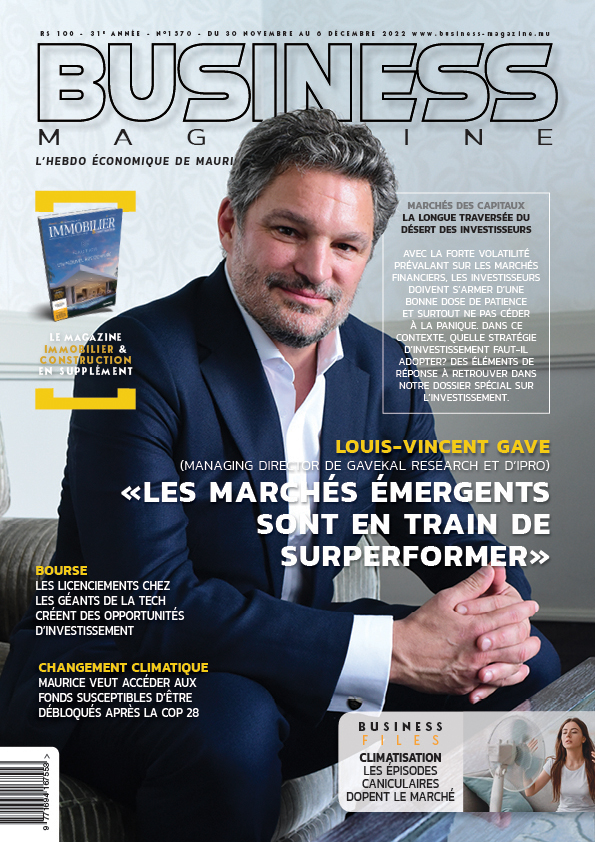Marjaana Sall – Mauritius-EU : past and future valued partnership
Share

Since taking office in September 2015, I have met with a large number of stakeholders from various sectors. Our discussions have reinforced my first impression that the European Union (EU) is a valued partner in Mauritius. This is a good sign as we discuss the future EU-Mauritius partnership in the framework of the “Post Cotonou negotiations”. As the world faces more complex challenges, notably climate change and peace and security, a key consideration in shaping this future partnership will be to work together towards achieving the Sustainable Development Goals (SDGs).
The EU and the Republic of Mauritius have a long-standing partnership. For forty years, this partnership has delivered major achievements in several areas. Mauritius is one of the countries which have benefited most of the cooperation between the EU and the ACP (Africa, Caribbean, Pacific) states, especially in the sugar sector. Support from the EU was ins-trumental for the reform of the Mauritian sugar industry at a time when it was facing the end of preferential access and quotas to the EU market. Over the past years, the EU has also supported the economic, trade and social reform programme in line with Government priorities.
The EU focuses on trade as one of the key drivers to support development, stimulate growth and lift people out of poverty. A key consideration of the EU in its relations with Africa is to foster the smooth and gradual integration of its ACP partners into the world economy – and ultimately contribute to sustainable development and po-verty reduction. The Economic Partnership Agreement (EPA), which is a development-oriented free trade agreement, contributes to the implementation of this objective. In 2009, the EU signed with Mauritius the EPA, which provides market access without any quotas or tariffs to the EU single market of 500 million consumers. Moreover, as a member of the Indian Ocean Commission (IOC), Southern African Development Community (SADC) and Common Market for Eastern and Southern Africa (COMESA), Mauritius benefits from the regional programme which provides an opportunity to access EU funding for large infrastructure projects with a regional scope and potential to increase regional trade.
The EU is committed to ‘leave no one behind’ and promote inclusive economic development. It continues to encourage non-state actors’ initiatives, in line with the Go-vernment of Mauritius agenda for socio-economic empowerment of the vulnerable groups. The Decentralised Cooperation Programme, which celebrated its 10 years in 2016, has funded more than 400 community-based projects in Mauritius, Rodrigues and Agalega to better the lives of thousands of citizens. Also, in Rodrigues, the EU supports the water sector to improve production, storage and distribution, especially for those families living in regions where distribution is irregular.
As regards climate change, a special attention is given to the vulnerabilities of Mauritius as a Small Island Developing State (SIDS). The EU is determined to continue to work with Mauritius on climate action at international level. The ACP-EU Alliance for COP 21 has played a key role, especially for the creation of the “High Ambition Coalition”, and in achieving an outcome that was far more ambitious than anyone expected going into Paris. Moreover, the EU assists the Government in addressing the challenges posed by climate change, and supports the work of the IOC to build resilience of SIDS, including through the protection against financial risks linked to natural disasters.
The EU partners with the Government to achieve its vision to evolve to a high income country. Our bilateral programme until 2020 will focus on tertiary education and research and innovation in line with the Government priorities to improve the human capital base in the country, and contribute to unlock growth.
Our partnership will reflect the new “European Consensus on Development” which addresses in an integrated manner the main orientations of the UN 2030 Agenda for Sustainable Development. We believe that our development policy needs to give more prominence to key drivers of sustainable growth such as gender equality, youth, sustainable energy and climate action, investment, migration and mobility.
As Mauritius is now a middle income country, our partnership has to move away from the traditional ‘donor-recipient’ relations. Our partnership now covers topics of mutual interest expanding beyond development cooperation, including maritime security, human rights, trade, migration, culture and climate change. Within this partnership, there are several opportunities to promote sustainable and inclusive growth.
The first one is the EPA. In order to enable Mauritius to reap the full benefits of the EPA, the EU is providing new funding to improve the business and investment climate. This has the potential to boost economic growth, job creation and sustainable development.
The second one is the new European External Investment Plan launched in September 2016. This new instrument, which aims at boosting investments notably in Africa (and EU neighbourhood countries), could provide opportunities to work with Mauritius to implement its Africa Strategy together with the private sector.
The third one is the EU programme for research and innovation (Horizon 2020) which is open to Mauritian research entities. This is an opportunity to work together to address societal challenges including food security, sustainable agriculture and forestry, marine and maritime research, and the bio economy which are key areas of interest for Mauritius.
The fourth one is climate action. A good basis for this is the agreement we signed with the IOC ahead of the COP 21 in 2015. This agreement increased the visibility of SIDS with regards to climate change. It is the kind of initiative that we would like to replicate in the
future.
This year is an important year for the EU partnership with Africa. The leaders from both regions will meet during the next EU-Africa Summit to take place in November 2017 in Abidjan. The Summit is a key opportunity to further reinforce the Africa-EU Partnership which provides the formal platform to promote EU-Africa relations.
While development cooperation remains a key aspect of the EU engagement in Africa, economic relations and investment, and the need to help create jobs are also a priority of this partnership. This year’s theme “Youth” calls for leaders to address the concerns of African and European youth, including employment, migration and security.
This year is also an important year for the EU as we will celebrate the 60th anniversary of the Treaty of Rome on 25 March. The Treaty of Rome is a founding treaty of the EU as it is today. The 60th anniversary of the Treaty provides us with a unique opportunity to tell EU citizens and our partners that the EU “delivers jobs, growth and investment”, “empowers with life-changing and enriching opportunities”, and “protects and defends”. At a time of internal challenges, our leaders are calling for a united EU. I hear Mauritian stakeholders’ concerns regarding the withdrawal of the United Kingdom (UK) from the EU. The UK remains a member of the EU with all rights and obligations of a member state until it leaves the EU.
The EU is a global actor. And we firmly believe that the world needs a strong EU. Economically, the EU is the world’s largest trading block and the top trading partner for 80 countries. It will remain a major economic force in the world whatever the outcome of negotiations between the EU and the UK.
Together with its member states, the EU is the world’s largest aid donor. It has continuously supported its partners to achieve the Millennium Development Goals, and is equally determined to help them achieve the Sustainable Development Goals. But the EU also plays a major role as a security provider. In 2008, it launched EUNAVFOR Operation Atalanta which has been critical in reducing piracy attacks off the coast of Somalia, and promoting maritime security in the Indian Ocean region. The EU also continues to provide significant funding for the Africa Peace and Security Architecture.




